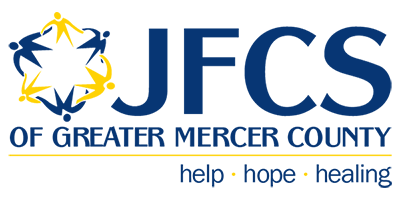 According to the National Institutes of Health (NIH), 35% of Americans who experience serious mental illness do not receive treatment; when we focus on those who experience substance use disorders the number is closer to 90% (Volkow et al., 2021). Given these high numbers it is crucial that we look for ways to remove barriers to accessing mental health care. While we often hear messages that promote the importance of mental health, there is also a long history in our society of treating mental illness and substance use as evidence of personal or moral failure. If we genuinely care about reducing the burden of mental illness on individuals, families, and society, then we must acknowledge that the stigma created by this mindset of mental illness and substance use as a character flaw can lead to barriers in accessing treatment for many people.
According to the National Institutes of Health (NIH), 35% of Americans who experience serious mental illness do not receive treatment; when we focus on those who experience substance use disorders the number is closer to 90% (Volkow et al., 2021). Given these high numbers it is crucial that we look for ways to remove barriers to accessing mental health care. While we often hear messages that promote the importance of mental health, there is also a long history in our society of treating mental illness and substance use as evidence of personal or moral failure. If we genuinely care about reducing the burden of mental illness on individuals, families, and society, then we must acknowledge that the stigma created by this mindset of mental illness and substance use as a character flaw can lead to barriers in accessing treatment for many people.
The language we use in our everyday lives can play a role in either adding to or reducing stigma around mental illness and substance use. For example, casual usage of words like “crazy’, “insane’, or “psycho” as pejorative descriptors in common conversation minimizes the significant challenges of those who experience mental illness and underscores the narrative that those with mental illness are somehow less worthy of being treated with respect and dignity.
Words used to describe people can influence not only how they view themselves but also the treatments they are offered. Studies have repeatedly shown that when patients are described as substance “abusers” or “addicts” physicians and other mental health clinicians are more likely to recommend punitive measures, such as jail time, instead of mental health treatment (Volkow et al., 2021). Using a term such as “substance use disorder” is clinically accurate and avoids the use of stigmatizing terms like “abuse” and “addiction”.
Many disability advocacy groups indicate a preference for the use of Person First Language (PFL) over the use Identify First Language (IFL) when describing diagnoses or disabilities that people experience. Using Person First Language to describe someone as a “person with Alcohol Use Disorder” instead of using Identity First Language to describe them as an “Alcoholic”, removes judgment and recognizes that the person is more than their diagnosis. However, not all populations have embraced Person First Language, and we should strive to use the terms preferred by those who experience a particular disability. One notable exception to the preference for Person First Language over Identity First Language relates to autism self-advocacy. In alignment with the Neurodiversity Movement, Identity First Language such as “autistic person” is overwhelmingly preferred by many autistic adults who consider the usage of Person First Language such as “person with autism” to be stigmatizing and invalidating of their lived experiences (Robison, 2019). They view autism as is intrinsic to their identity, not something that needs to be cured.
While it is always important to focus on the person not their diagnosis, it is also important to honor preferences about how certain individuals and populations prefer to describe themselves. The words we choose can either perpetuate stigma or honor the experiences of those who are struggling and need support.
Sarah Valerio, Clinical MSW Intern
References:
Robison, J.E. (2019), Talking about autism—thoughts for researchers. Autism Research, 12: 1004-1006.
Volkow, N. D., Gordon, J. A., & Koob, G. F. (2021). Choosing appropriate language to reduce the stigma around mental illness and substance use disorders. Neuropsychopharmacology.


